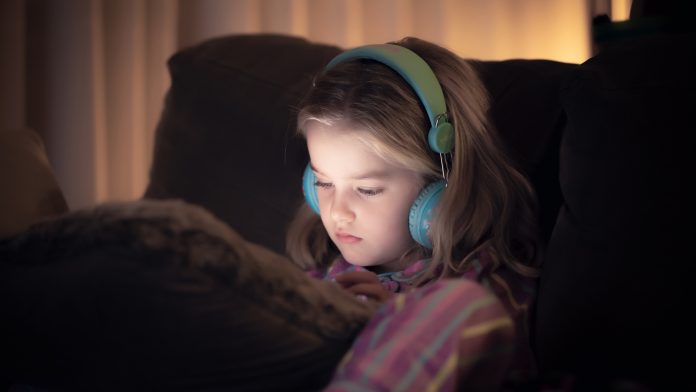
A new randomised clinical trial shows that controlling screen time can increase physical activity levels in children.
Screen time is a hot topic, with some smartphones providing a dedicated breakdown of your mobile phone usage. Children have always been sedentary, but is the rise of digital devices reducing physical activity even further? Researchers from the University of Southern Denmark set out to answer this question.
The study is published in the JAMA Pediatrics journal.
Screen time intervention for children
89 families (181 children and 164 adults) were randomly placed into two groups: one group handed over their smartphones and tablets for two weeks and reduced screen time to less than three hours a week and the other group continued with their usual screen time habits. Physical activity levels of the participants were assessed over seven days using accelerometers mounted on the thigh and trunk at baseline and a two-week follow-up.
The researchers found that the children in the screen time reduction group exercised on average for 45 minutes longer than the children in the control group.
“We found that children in the screen reduction intervention group had an average of 45 minutes more daily physical activity compared to children in the control group. The difference between the groups was largest on weekend days where children in the screen reduction group had an average of 73 min more physical activity compared to children in the control group”, said Jesper Pedersen, PhD student at the University of Southern Denmark.
“The results of our trial suggest that spending many hours using digital screens after school, kindergarten, and on weekends displaces some activities where children move more around. Thus, it is important that families with children create healthy and balanced use of screen devices in the home environment”, said Anders Grøntved, Professor at the University of Southern Denmark.
Did screen time affect the parents?
Middle-aged or young adults are typically less physically active during their leisure time compared to children. The data showed that their use of digital devices was as high as the children’s screen time. The researchers found no difference in daily movement during leisure between adults in the screen reduction group and the control group.
“We were quite surprised when we saw the numbers for the adult participants. A potential explanation may be that adults are less spontaneous in their physical activity behaviour compared to children. Although the results suggest that reducing screen media use is an ineffective way of increasing adults’ daily movement, it may still be a good idea for adults to balance their screen use in the home because we know from previous research that parental screen use in the home is strongly associated with children’s use of screen media. A reduction of recreational screen use among parents could be a key to balancing children’s own use”, explained Grøntved.
























